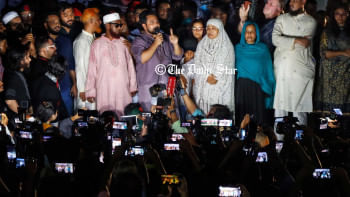What went wrong with data play?

Fed up being obese, Shrek decides to lose weight. He switches to a healthy diet and works out every day, feeling amazed at how well he adapted to his new lifestyle.
After a few weeks, he steps on the scale, and to his distress, finds himself five pounds plus! "I don't understand," he says to his doctor. "I've been doing everything right."
The doctor smiles and says, "Well, you've certainly been targeting your goal, but it was probably not the right way."
We have all been through this experience where we target something but achieve something opposite.
In the last 12 years, the Bangladesh Telecommunication Regulatory Commission (BTRC) has introduced several new technologies focusing on data play. 3G, 4G and 5G were launched in 2013, 2018, and 2022, respectively.
Even the spectrum auctioned were mostly for data play. Spectrum prices and terms are made attractive for operators to purchase and improve the quality of service with a clear focus on data. Such a strategy of the BTRC should have directly impacted the voice revenue of operators, as has been the case with other countries.
This theory, however, is not working in Bangladesh like Shrek's weight loss story. The last four years' figures still suggest some growth in voice revenue. At best, it was flat and no sign of reduction.
The data revenue share of the total market revenue, however, increased from 25 percent in 2019 to 33 percent in 2022, an insignificant increase considering the resources and efforts invested for the purpose and also in comparison with regional countries.
Robi, the telco I worked for, went on a single-minded focus for data play during the 4G launch, with a decision in 2018 to sunset the 3G technology by 2022. This strategy gave the operator a leading edge in data play, making it a challenge for other operators to match in the future. Robi's data share has also been higher than the market average during the period.
Data play is considered more investment-intensive and competitive for telecom operators as data can be used for various purposes such as browsing, streaming, gaming and social media. On the other hand, voice play is increasingly losing popularity and relevance, with users having alternative methods of communication, such as VoIP, video calls and instant messaging through data.
Reasons for not having pure data play at the cost of voice include regulatory price protection for voice, giving operators a milking opportunity and explaining why most operators are delaying the conversion of 2G and 3G spectrum for voice to data.
Consumer taxes for data and voice are the same without focusing on data. A failed device policy and the low digital literacy, including language barriers among some population segments, maybe the other reasons.
Given the aforementioned consequences, our regulators may consider giving a deadline to operators to sunset 3G and use the spectrum for 4G. A policy to drive 4G device penetration to nearly 100 percent, like in India should be enforced.
According to GSMA, great content is nothing without high-speed networks. Bangladesh has 95 percent coverage of 4G but only around 50 percent smartphone penetration.
A Daily Star report suggests that the production of 4G smartphones plummeted by over 61 percent in the first quarter of 2023. Price protection for voice should be removed, allowing the market to determine the price instead.
The National Board of Revenue should seriously consider slashing consumer tax on data for wider affordability.
Data plays a direct role in fintech, edutech, innovation, Smart Bangladesh vision and, most importantly, socio-economic development. Its importance must be weighed in the context of the opportunities being lost.
Bangladesh has fallen behind in the race against regional countries. But it is never too late to turn the tables around. A Smart Bangladesh can only be achieved if the above fundamentals are addressed and that time is now.
The author is founder and managing director of BuildCon Consultancies Ltd

 For all latest news, follow The Daily Star's Google News channel.
For all latest news, follow The Daily Star's Google News channel. 



Comments